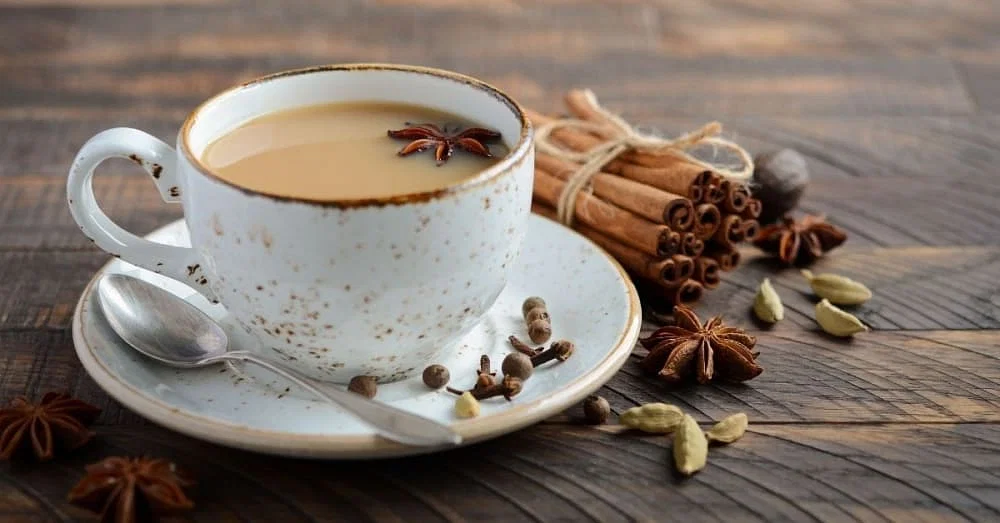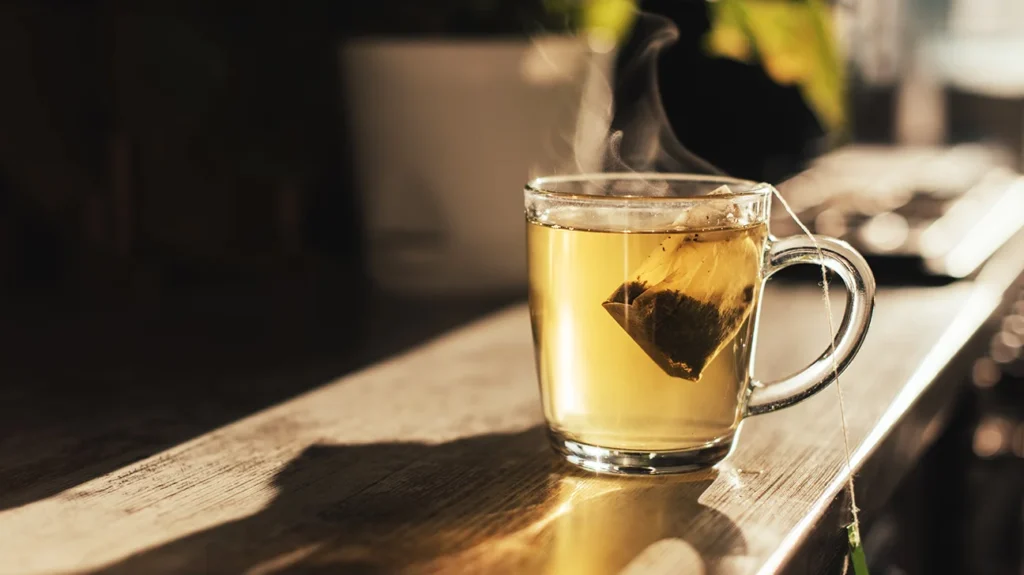World of Tea: In a world that is V8-powered by caffeine, tea sustains its sacred place as one of the most essential drinks known to man. From its first discovery in ancient China to the vast popularity enjoyed today, tea has a distinct appeal that spans continents and warms the heart. In this paper, we review the differing varieties of this ancient drink and describe its health benefits. Every variety, from the tiniest white to the darkest black, allows for a unique fresh experience. Green tea has long been considered an antioxidant-rich weight-loss and disease risk-reduction treatment. Herbal teas, on the other hand, have calming and digestive properties; for example, chamomile or peppermint.
Therefore, this paper presents a small review concerning the health gain offered by tea. The goal is not only to introduce the vast range of tastes available, but to show how amazing the effect of tea on people is. Thus, both tea fans interested in understanding the underlying details and readers who are only contemplating post-drinking habits will learn some interesting information.
The History and Cultural Significance of Tea
Tea has a long and rich history that can be traced back thousands of years. The beginnings of tea cultivation and consumption are believed to have taken place in ancient China during the reign of Emperor Shen Nong . The legend has it that the emperor discovered tea accidentally when a leaf from a Camellia sinensis tree feel into his boiling water . He was impressed by the scent and the taste of the drink, thus, he declared tea to be a medicinal herb that rejuvenates.
Emerging in China, tea made its way to the rest of Asia, and, eventually, it was brought to other parts of the world. Tea drinking quickly became an integral part of different cultures accompanied by its own practices and rituals. The Japanese Chanoyu is a highly choreographed tea ceremony emphasized harmony, respect, and quietness.
The Indian blend of spices, the masala chai, is a preferred version of the beverage used for its strong smell and taste . The British afternoon tea with delicate scones and cucumber sandwiches is an epitome of the Western depiction of the elegance of tea.
Moreover, this drink has been a part of the social sphere by being at the core of numerous events and even revolts. The Boston Tea Party is a vivid example of the latter, with which the American Revolution began.

Types of Tea – Black, Green, White, Oolong, and Herbal
Tea is derived from the leaves of the Camellia sinensis plant, and its different types are a result of variations in processing methods. The main types of tea include black, green, white, oolong, and herbal teas.
Black Tea
It is the most common form of tea ingested around the world and is characterized by a strong flavor and dark color . Black tea has been fully oxidized, which has a big impact. The teaactive components responsible for this phenomena are theaflavins and thearubigins, which are both cancer chemoprotective in nature. Generally, studies have shown that drinking black tea might help your heart, reduce your likelihood of having a stroke, and lower your blood pressure . It may also contain caffeine, which is commonly found in a cup of coffee.
Green Tea
Green tea is considered to be a miraculous drink due to the wide range of health benefits it has. This Asian favorite is produced from unoxidized leaves that keep its bright green color and a fair amount of naturally occurring antioxidants called catechins. One of the most studied catechins is epigallocatechin gallate. EGCG can acertain potential in reducing the risk of developing chronic diseases, including several types of cancer, cardiovascular diseases, and diabetes.
Additionally, green tea is known to boost metabolism and can help people lose weight.
White Tea
White tea is the least processed type of all teas and is produced from the Camellia sinensis plant’s youngest leaves and buds. It is only minimally oxidized and, as a result, has a light and delicate taste.
Furthermore, white tea has high levels of antioxidants, which are believed to be the most powerful type of catechins in existence. As a result, the compounds defend the body against oxidative damage and inflammation, preventing the development of various pathologies and enhancing overall health.
Finally, white tea can provide better skin health and anti-aging impact due to the high polyphenol composition.
Oolong Tea
Oolong tea is a partially fermented tea that falls between black and green tea in terms of oxidation. It is known for its complex flavor profile, ranging from floral and fruity to nutty and toasty. Oolong tea contains a unique combination of antioxidants, including theaflavins, catechins, and flavonoids, which contribute to its potential health benefits. Studies have shown that oolong tea may help improve brain function, boost metabolism, and aid in weight management. It is also believed to have anti-inflammatory and anti-cancer properties.
Herbal Tea
Unlike the other types of tea, herbal tea is not made from the Camellia sinensis plant. Instead, it is made from a variety of herbs, flowers, fruits, and spices, offering a wide range of flavors and health benefits. Herbal teas are often caffeine-free, making them a popular choice for those looking for a soothing and calming beverage. Chamomile tea, for example, has been used for centuries as a natural remedy for insomnia and anxiety. Peppermint tea is known for its digestive benefits, relieving symptoms such as bloating and indigestion. Other popular herbal teas include ginger, hibiscus, and rooibos, each offering its unique set of health-promoting properties.
Health Benefits of Black Tea
Black tea, with its bold flavor and rich color, offers more than just a satisfying taste. It is packed with beneficial compounds that can positively impact our health.
1. Heart Health
Several studies have shown that regular consumption of black tea may help improve heart health. The antioxidants found in black tea, such as theaflavins, have been shown to reduce the risk of heart disease by improving cholesterol levels, reducing blood pressure, and preventing the formation of blood clots. Black tea is also believed to promote blood vessel health and improve blood flow, further supporting cardiovascular health.
2. Mental Alertness
Black tea contains caffeine, albeit in smaller amounts compared to coffee. This caffeine content provides a natural energy boost and promotes mental alertness without the jittery side effects often associated with coffee consumption. Black tea also contains an amino acid called L-theanine, which has been shown to have a calming effect on the brain and may help improve focus and concentration.
3. Digestive Health
The tannins found in black tea have been shown to have a positive impact on digestive health. They help reduce inflammation in the digestive tract and can alleviate symptoms of diarrhea, bloating, and indigestion. Black tea also contains compounds that promote the growth of beneficial gut bacteria, which play a crucial role in maintaining a healthy digestive system.
Health Benefits of Green Tea
Green tea has gained popularity worldwide for its numerous health benefits, backed by extensive scientific research.
1. Weight Loss
Green tea is often associated with weight loss, thanks to its ability to boost metabolism and promote fat oxidation. The catechins found in green tea, particularly EGCG, have been shown to increase calorie expenditure and fat oxidation, making it an ideal beverage for those looking to shed extra pounds. Green tea also helps regulate blood sugar levels, reducing cravings and maintaining stable energy levels throughout the day.
2. Antioxidant Powerhouse
Green tea is rich in antioxidants, which help protect the body against oxidative stress and inflammation. The catechins found in green tea, particularly EGCG, have been shown to have potent antioxidant effects, surpassing even vitamins C and E in their ability to neutralize harmful free radicals. These antioxidants have been linked to a reduced risk of chronic diseases, such as cancer, heart disease, and neurodegenerative disorders.
3. Brain Health
The combination of caffeine and L-theanine found in green tea has been shown to have positive effects on brain health. Caffeine provides a natural energy boost and enhances cognitive function, while L-theanine promotes relaxation and reduces anxiety. Together, these compounds help improve focus, attention, and overall brain performance.
Health Benefits of White Tea
White tea, known for its delicate flavor and subtle aroma, offers a range of health benefits.
1. Anti-Aging Effects
White tea is rich in antioxidants called polyphenols, which help protect the skin against the damaging effects of free radicals. These antioxidants help prevent premature aging by reducing the appearance of fine lines, wrinkles, and age spots. White tea also promotes skin elasticity and hydration, resulting in a youthful and radiant complexion.
2. Immune Boosting
The high concentration of antioxidants in white tea strengthens the immune system and helps ward off harmful pathogens. White tea has been shown to have antimicrobial properties, inhibiting the growth of bacteria, viruses, and fungi. Regular consumption of white tea can help prevent common illnesses such as colds and flu and promote overall immune health.
3. Oral Health
White tea has been found to have beneficial effects on oral health. It helps inhibit the growth of bacteria that cause tooth decay and gum disease, promoting healthy teeth and gums. White tea also reduces the risk of bad breath by neutralizing odor-causing bacteria in the mouth.
Health Benefits of Oolong Tea
Oolong tea, with its complex flavor profile and unique processing method, offers a host of health benefits.
1. Weight Management
Studies have shown that oolong tea may help in weight management by increasing metabolism and fat oxidation. The combination of catechins and caffeine in oolong tea enhances calorie expenditure and promotes the breakdown of fat cells. Oolong tea also helps regulate blood sugar levels, preventing insulin spikes and reducing cravings for sugary foods.
2. Brain Function
The caffeine content in oolong tea provides a natural energy boost, improving focus, alertness, and cognitive function. Oolong tea also contains theanine, which has a calming effect on the brain and promotes relaxation without causing drowsiness. The combination of caffeine and theanine in oolong tea helps improve mental clarity and overall brain performance.
3. Antioxidant Power
Oolong tea is rich in antioxidants, particularly theaflavins and catechins, which help protect the body against oxidative stress and inflammation. These antioxidants have been linked to a reduced risk of chronic diseases such as heart disease, diabetes, and certain types of cancer. Regular consumption of oolong tea can help boost overall health and well-being with togelon.

Health Benefits of Herbal Tea
Herbal teas can be made from virtually anything that can be put in hot water: different herbs, flowers, fruits, and some spices; in most cases, such an influence is actually not harmful.
The first group is just our stomach help: chamomile, peppermint, and ginger. In some way, chamomile has been used as a natural remedy for bloated stomach or just a stomachache for more than thousands of years. Just find some chamomile seeds or flowers and make a cup right after the meal. Peppermint soothes muscles of the GI tract, so it can actually help people with IBS or those who just uncomfortable with the cool weather; make some following cup . Some ginger is pretty good for morning sickness or long car rides.
The second group is our sleep helpers – chamomile again and lavender. Chamomile affects you by relieving stress and not letting you worry about sleeping too much. Lavender actually does not affect you at all since they work with you just by smell.
Finally, some help for immune system groups – echinacea, and elderberry. Echinacea also gives a chance for us to relieve or prevent col or flu viruses . Elderberry was used for ages – antioxidants will protect you from some viruses.
How to Choose and Brew the Perfect Cup of Tea
Choosing and making a perfect cup of tea is a highly individual and pleasant process that adds even more satisfaction to this popular drink. Specifically, one can boil tea leaves of various types in a number of ways, and several factors influence their overall flavor.
First, it is essential to determine which type of tea one would like to drink. If the person prefers strong and robust taste, then black tea is the way to go for them. Green tea is more delicate and grassy, while white one is mildly flavored and smells of flowers.
Oolong grants a complex, balance taste, and herbal offers all the variety one could imagine, from the calming chamomile to invigorating ginger. Further, in order to maximize flavor, one should look for high-quality loose-leaf tea.
In this way, they let the leaf unroll completely and release all flavor and aroma possible. One should avoid tea bags, as they typically contain cheap leaves with little taste. Third, to achieve the perfect taste, one should monitor water temperature and brewing time. Black tea can take about 3 to 5 minutes in boiling water, green tea will need around 175°F (80°C) and 2 to 3 minutes, white tea – 160°F (70°C) , and about the same brewing time as green. Oolong requires 195°F (90°C) and can set for up to 5 minutes.
Herbal teas are more diverse in their specifications, but 5 to 7 minutes in boiling water should be sufficient .
Finally, one should feel free to experiment and enjoy all the possible tastes. Hot or cold, with or without milk or lemon, the combinations one can create with tea are truly endless.
Exploring the Diverse World of Tea
But tea is far more than only a drink. It is a journey through flavor profiles, nations, and health. From the bold and rich flavors of black tea to the subtle and nuanced sips of white tea, each has its flavor, health advantages, and favors a specific taste palate. Tea-drinking should not be simply an external drinking experience.
The sensation of discovering flavors may alter in a way you’ve never experienced before. If you’ve never investigated the universes of various teas, it’s time to get begun soon. With its widespread success and versatility, tea is undoubtedly a phenomenon. One can appreciate traditional cultural customs or sip on an afternoon cup. Additionally, they might profit from its health benefits by combining it into their wellness regimen. How extraordinary is that? Tea makes a significant contribution to culture and civilization. In the end, whether devouring a soothing cup before sleeping or a strong mug to awaken, the tiny brew accompanies health advantages. Tea is a diverse journey to be made and drunk.
Also read: King Ludwig: Absolute Marvels of Bavarian Palaces

